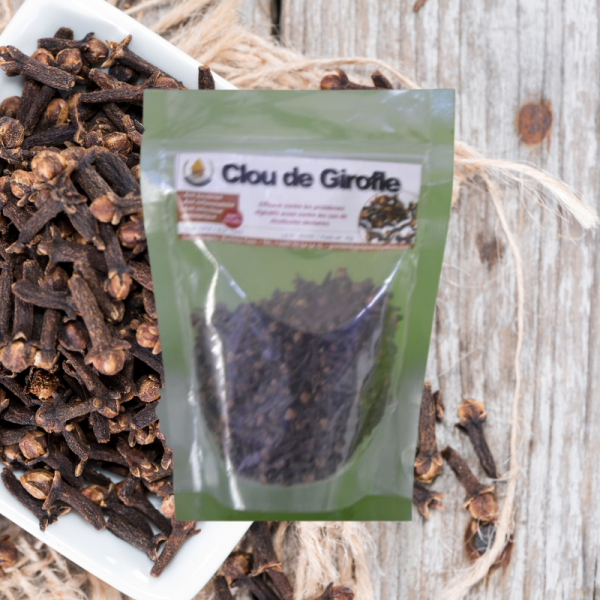




Native to Indonesia, cloves are known for their many benefits. It is anti-inflammatory and soothes muscle pain. But it is also a very good local anesthetic and an effective antiseptic. Cloves also work against bacteria, microbes and viruses.
Medicinal properties of cloves
Internal use
Anti-inflammatory action, relieves muscle pain or rheumatism. Aphrodisiac. Antibacterial action. Soothes urinary tract infections (kidney stones or cystitis). Reduces various stomach ailments: aerophagia such as bloating. Very good local anesthetic. Useful in relieving cough from viral conditions.
External use
Antiseptic properties: cloves can disinfect wounds. It can also be used as a remedy for bad breath. It is also used against dental pain.
Usual therapeutic indications
It is a local anesthetic, especially for dental pain. It also has antibacterial and antiviral action. It relieves muscle pain, rheumatism and has anti-inflammatory properties.
Other therapeutic indications demonstrated
It is recognized for its action against urinary tract infections, such as cystitis or kidney stones. It treats digestive disorders (bloating, aerophagia), restores energy and helps fight fatigue. It is also an antidepressant
Use and dosage of cloves
Dosage
Contraindications
Cloves are not recommended for children under 12, pregnant or breastfeeding women.
Side effects
Overdose may cause mild gastrointestinal disturbances, such as vomiting, nausea or diarrhea.
Data sheet